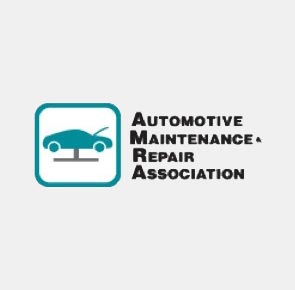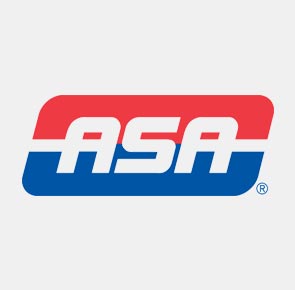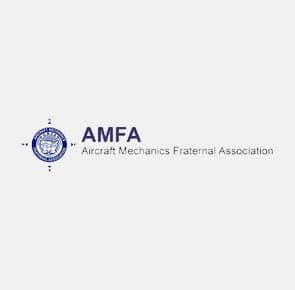University Headquarters (HQ) is an industry-leading, independent educational organization that provides independent college rankings using a proprietary formula to create first class unbiased rankings. The team at University HQ strives to provide accurate and trustworthy rankings that highlights the best programs for automotive mechanics.
Compare Popular Online Automotive Programs
A mechanic career entails a lifetime of learning new mechanical systems, mastering new technologies, and the deep satisfaction that comes from hearing a once-broken motor purr with perfection. Mechanics are found in many different sorts of jobs. If you work on cars or other consumer transportation, there are many sorts of engines you can work on. For instance, you could specialize in European, Japanese, or American-made vehicles. You could also work on other mechanical systems such as HVAC units, diesel motors, motorcycles, small engines, or large-scale industrial equipment of all sorts.
A mechanic's career, whether graduates take up automotive service careers, jobs as generator mechanics, aviation mechanics, or automotive service technicians and mechanics, typically entails many hours covered in engine grease, turning a wrench. These days, you might also need to perform computer diagnostics, or even install new software in a system. Either way, your office might be a mechanic's bay at an automobile dealership, an airport hangar, manufacturing facility floor, or in an independent shop. Some lucky mechanics land positions on pit crews for NASCAR, Indy Car, or F-1 racers who demand precise and super-fast repairs. Below is a list of all of the fields in which you can find yourself working as a mechanic and subjects that some of your courses might cover.
- Automotive Service Technology or Automotive Restoration Technology
- Automotive Technology Management
- Automotive Engineering Technology
- Collision repair Technology
- Diesel Mechanic Technology
- Power Generation Technology
- High Performance Power Trains
- Agriculture Mechanics Technology
- Automotive Systems
- Heavy Equipment
- Robotics and Automation Technology
- And More
Get Matched With Mechanic Trade Programs

Components of A Successful Mechanic Career
Successful automotive service careers or a successful mechanic career might look very different from one mechanic to another. However, the most successful mechanics will probably have multiple certifications that qualify them to work on a range of engines (such as agriculture mechanics technology and high performance power trains), experience working on those machines, and perhaps have completed a degree program in mechanics.
To be a highly-qualified mechanic, you should first investigate and qualify yourself for your state's mechanic's certification. While some states have no requirements for their atomotive mechanic students, others have individual certifications for a range of engine types and requirements that technical courses and programs are accredited. Michigan, for instance, has a range of certification tests for automobiles, heavy equipment and trucks, and others, such as motorcycles, pre-1973 vehicles, and collision repair technology.
Read MoreEven if your state has no standards for certification, you should consider achieving certification from the National Institute for Automotive Service Excellence (ASE). They have over 40 tests that cover subjects such as: cars and light trucks, collision repair, school buses, and automobile and truck parts. Many programs available from auto mechanic schools offer a specialized training program with practical education and technical courses and boast grads who get jobs in less than a year.
Search Programs
What Does A Mechanic Do?

Typical Mechanic Trade School Requirements
Typically, mechanics must have either a High School Diploma or a GED certificate to gain admittance to a trade school. Most states then require a certificate to work with specific machines. There is also a national certification board, ASE, that may stand in for some state requirements, but not all. Check with your state regulatory board to make sure you have the proper credentials.
Typical Mechanic Certifications Needed

Academic Standards for a Mechanics Certification
To attain a Mechanic Degree or academic Certification, you should maintain the best GPA you can. The typical standard for graduates is a 2.0 cumulative GPA on a 4.0 scale. Your program should be grooming you for either a state or national certification. Certificates typically entail passing a detailed test that covers your specific specialty.
Exams and Experience Needed
To attain an entry-level ASE certification, you will need to pass a test that corresponds with your chosen specialty. ASE examinations include, but are not limited to:
Automobile
- Automatic Transmissions
- Automobile Service & Technology
- Brakes
- Heating and Air Conditioning
- Maintenance and Light Repair
- Manual Drivetrain and Axles
Collision Repair & Refinish
- Mechanical and Electrical
- Non-structural Analysis and Damage Repair
- Painting and Refinishing
- Structural Analysis and Damage Repair
Medium/Heavy Truck
- Brakes
- Diesel Engines
- Electrical/Electronic Systems
- Suspension and Steering
Mechanic Degree & Certification Options
Seeking formal education for your career in mechanics is a wise move. You can learn a lot on the job, but a comprehensive Certificate or Associates Degree program will give you a foundation for a lifetime of success.
A certificate program will get you started with a broad range of courses and knowledge. You can make this the whole of your formal education, if you wish. If you complete your certificate through a local or online college and then follow up with ASE or state certification, you will likely be far ahead of your peers. However, a certificate does have limitations when compared with an associate’s degree.
That's because an associate degree shows an employer that you went the distance to gain a complete education. You can still add ASE and state certifications, but the degree will open the door for even more. That is, you can follow up on your AA degree by transferring to a four-year institution to complete a bachelor's degree. You could also apply your existing coursework towards a secondary associate degree in something like management or accounting. After turning a wrench for a few years, you might want to move into the office, and additional coursework can facilitate your advancement. In the meantime, remain focused achieving a certificate or associate degree to kick-start a long successful career in mechanics.
The main types of Mechanic programs are:
- Auto Mechanic:
An auto mechanic repairs and modifies consumer vehicles. In this program, you will learn about various foreign and domestic engines and affiliated systems such as brakes, electrical, engine cooling systems, and climate control. You will also learn differences between European, domestic, and Asian automobiles, including quirks affiliated with specific model years, etc. Some programs might even have special programs that cover antique cars built before 1973 or so. - Heavy Vehicle Mechanic:
This specialty will teach you how to work on large engines that power the vehicles you might see on a construction site, at a quarry, farm, railroad, or on the road in large buses. You will probably learn a lot about diesel motors in this program. Thus, your job prospects might include trucking companies, commercial farming operations, and construction companies, among others. - Motorcycle Mechanic:
Motorcycles are notoriously temperamental, and their riders need a reliable mechanic who can keep their bikes tuned and in tip-top shape. In this program, you will learn the ins-and-outs of motorcycle maintenance including how to work on clutch systems, motor rebuilding, and fixing the brake systems so that they are as reliable as possible. If you love fixing or modifying 2-stroke engines that are found in vehicles such as: Harley Davidsons, sleek Moto Guzzis, motocross bikes, or even ATVs, this is the field for you. Who knows? With a bit of experience, you might even work for a motorcycle or ATV racing crew. - Small Engine Mechanic:
Small motors are indispensable. They help us get many tasks done. You can make a good living fixing lawn mowers, standard-sized motorboats, motorcycles, or outdoor equipment. It's likely that you'll have a specialty in one of those areas. - Diesel Mechanic:
Some might think that diesel is a thing of the past, but many industrial and commercial vehicles rely on these oil burners to conduct business every day. European automobiles even maintain a line of diesel cars that people love for their longevity and efficiency. With this specialty you can work on a wide range of systems, but you will probably find your primary market in transportation or working with some sort of industrial heavy machinery.
The cost of your degree will depend whether you choose an in-state, out-of-state, online, or private program. Typically, private and out-of-state tuition rates are much higher than in-state. Nevertheless, some public programs can cost up to $16,400 per year. On the other hand, the low end is a school that charges $2,700 per year for in-state students and $4,800 for those coming from out-of-state.
Potential Careers & Salaries for Mechanic Graduates
While you love mechanics and the satisfaction of returning a non-working automobile to full function, it's also important to get paid. When you work through an associate degree or a certificate program, you will see your earnings rise as a result. That's because you will have the necessary skills and training and your graduating documents will prove that you know your stuff. Further, if you graduate with an associate degree, you can easily add to your educational credentials to gain the skills needed for management, or even independent shop-ownership.
Mechanic Annual Median Salaries by Occupation
| Occupation | Entry-Level | Mid-Career | Late-Career |
|---|---|---|---|
| Automotive Mechanic | $35,100 | $48,900 | $59,400 |
| Electrician | $48,800 | $55,200 | $68,500 |
| Diesel Mechanic | $44,800 | $48,600 | $57,400 |
| Heavy Equipment Mechanic | $44,800 | $48,600 | $57,400 |
| Small Engine Mechanic | $27,000 | $30,700 | $42,100 |
| Industrial Mechanic | $46,000 | $58,500 | $55,500 |
Important Questions to Ask
How long does it take to earn a Mechanic Degree or Certification?

How much does a Mechanic Trade School Degree cost?
A trade school degree in Automotive Service will cost approximately $16,000. That figure is only for your tuition. You will also need to pay for books, tools, and possibly pay extra lab fees for your courses. Keep in mind that your tuition costs could be significantly higher, depending on your specific program.
How many students graduate “on time,” in 12 months or 24 months?
Approximately 33% of students graduate within three years of beginning a two-year post-secondary program. This number includes all students in all two-year programs. However, if you find a competitive program and you are able to maintain your enthusiasm for learning your chosen trade, you will be more likely to graduate on-time.
What kind of accreditation does the program hold? How is it regarded in the field?

While there aren't many specific accreditations for Automotive Services, if your school has a regional accreditation, your employers will surely know and respect your degree. In fact, if you are currently working in a mechanic's shop, ask your employer which trade schools are his or her favorite. Note that if your school isn't ASE-accredited, you can still sit for their certification exams, including their entry-level credentials.
Software, Technology & Skills Needed
Your degree in applied sciences/automotive repair is designed to give you the technological skill needed to repair a range of vehicles and engines. You won't need to have much, if any, special technical knowledge when you begin your degree. However, it will help to have at least some informal experience working in your own car or studying repair videos on YouTube.
You will need to acquire tools along the way. Just at culinary students need to purchase a set of knives, you will probably need a good set of socket wrenches, screw drivers, and pliers. Your degree program will likely have a list of required tools for you to purchase.
Mechanic Trade School Scholarships
-
AmericanMuscle Student Scholarship Program
Amount: $2,500 (4 Awards/year)
Deadline: October 15 (Spring), June 15th (Fall)
American Muscle offers four scholarships per year. They award two $2,000 scholarships to assist with Fall tuition and then two more for Spring. Scholarships are for students who are or will study auto mechanics or some other automotive-related major. To enter, you must submit a 700-1500 word essay to describe how you intend to use your education to support or advance the custom-car industry. Applications are submitted as pdf files on or before October 15 or July 15. While the scholarships are not renewable, you may reapply with a new essay every term.
-
AfterCollege Vocational & Trade Study Scholarship
Amount: $500
Deadline: March 31
This $500 award is intended to help vocational students across a wide range, including mechanics. It is available to any student seeking a post-secondary education at a community college, career, vocational, or trade school. To apply, all you need to do is submit an AfterCollege profile for yourself. In fact, you can continually update your profile until the final deadline.
-
Civitan Shropshire Scholarships
Amount: Varies
Deadline: January 31
This $1,000 scholarship is available to Civitans and their families nationwide. The only stipulation is that the applicant, or the sponsoring Civitan, have held a membership for two years. Thus, you need to determine how your degree and career works to support Civitan ideals, as stated in their creed. Note that you must be in an accredited program, have a stellar academic record, and demonstrate financial need.
-
MoneySolver New Year’s Resolution Scholarship
Amount: $1,000
Deadline: January 31
You don't have to stick to your New Year’s Resolution, but to apply for MoneySolver's scholarship prize, you must write an essay that details how you intend to keep your resolutions. Essays should be no longer than 250 words and submitted by the end of January. If you miss it this year, the scholarship should be available for next year's resolutions. Essays are judged for creativity, writing ability, originality, and overall excellence.
Professional Mechanic Trade School Organizations
- AMRA
- ASA
- AMFA

AMRA
Automotive Maintenance and Repair Association
This is the association you want to join if you are interested in maintaining the very highest standards for automotive maintenance and repair. AMRA has over 21,000 locations nationwide that allow independent, national, and regional mechanical service providers to meet and discuss standards and best-practices that cover the full range of automotive issues. With membership comes the ability to show your customers that top-quality service is your priority.

ASA
Automotive Service Association
The ASA is a premier trade association that provides everything you need in an association: representation in DC, educational and training opportunities, group rates on the products and services you use every day, as well as industry information. On top of that, you will have opportunities to network and fellowship with shop owners from coast-to-coast.

AMFA
Aircraft Mechanics Fraternal Association
The AMFA is an independent trade union that represents aircraft mechanics and technicians. While they work on behalf of all aircraft mechanics, and related technicians, members have access to the full range of representation offered by a union. They also seek to uphold the highest standards among their membership, thus creating an environment of excellence that keeps the airways safe and secure. AMFA also has recommendations for the very best schools that will prepare you for licensure and success in the field.
Choosing an Accredited Mechanic Vocational School
It is vital that you choose an accredited vocational school for your Mechanic training. This is because if your school is in good standing you will find more employers are interested in your resume. You will also find that tuition reimbursement comes quicker for accredited degrees, and more scholarships are available to such programs. Further, if you decide to return to school for another degree or certificate, your hard work will be acknowledged, and the credits will more likely transfer if your diploma/certificate is from an accredited institution.
Online vs On-Campus vs Hybrid if Available
When deciding on a school to attend, you can now choose between online, on-campus, or hybrid programs. Online mechanics programs might sound odd, but technology enables interactive experiences that allow you to gain virtual experience in your own time. If you are working full-time in a mechanic's shop, you might find that the virtual interaction pairs nicely with your day-to-day physical work on cars and motors.
On the other hand, on-campus mechanics programs enable you to put your tools to work in the classroom. You can work alongside your fellow students to solve problems and overcome challenges just as if you were in a repair bay together. Though some will swear that working on-campus is the ideal way to become a mechanic, you might be able to make the comparison for yourself in a hybrid program.
Some programs provide courses both on-campus and online for the same program. This will enable you to compare the two learning platforms. Further, if your fellow online students are also working on-campus, you will have a familiarity that makes the online interactions more meaningful.
Additional Questions
Does the Vocational School Have Post-Graduate Job Placement Assistance?
This is a vital part of vocational education. Before you register for classes, make sure you find out whether your program offers some pathway to employment. That way, when you start work on your mechanic degree or certificate, you will know that there will be some sort of payoff at the end of your two years. In particular ask about:
- Job fairs
- Resume Assistance
- Other Employment Resources
- Internship Opportunities
- Co-op Programs
Why You Need to Consider the Overall National Rankings of the School and The Effects on Your Career or Salary
When you go to a college or university, make sure you attend the best school you possibly can. This will ensure that you not only receive the best education, but that your academic credentials carry the maximum weight in the job world. You want to have the most choices and opportunities available in your career field and the best-ranked schools will open up those possibilities. For example, with a top degree you could find yourself on a team that is flown all over the nation and world to repair all sorts of engines. You could also be considered for high-prestige jobs such as working on a racing team.
